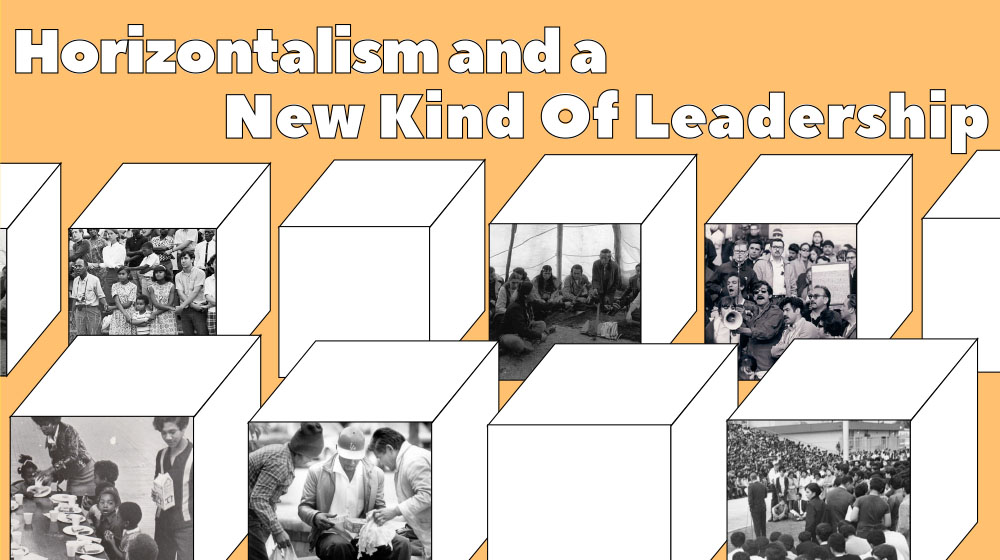
Our current capitalist society is built on entrenched hierarchies that train us to accept top-down models of leadership as natural. We come to believe we need to look outside of ourselves towards someone else to do the real work of changing society; to look outside of ourselves to make the big decisions because someone else, some ‘expert,’ knows more; to look outside of ourselves because we fear making mistakes and we can’t imagine it any other way.
In our organizing experience, we have recognized how deeply we have internalized the notion that social hierarchy is natural and inevitable and therefore within our organizations we often take top-down approaches that replicate the structures of domination that we seek to eradicate. If our vision of a different world is truly radical and transformative, why would we want to continue to employ the very same hierarchical systems that we seek to dismantle? By developing nonhierarchical practices we hope to lessen the hold that capitalist/imperialist heteropatriarchy has on us and begin to develop ways of organizing that model how we want to live in the world.
In our study of the lessons taught to us by radical feminists, women of color in the U.S. and women of the global south who were involved in struggles with roots in Marxist-Leninist organizations, anarchists and others, we see the importance of centering non-hierarchy in our practice by deliberately cultivating non-traditional ideas of leadership and making the personal political.
We believe the concept of horizontalism points towards a different way for creating radical social change. Horizontalism challenges each individual to break out of the patterns of allowing others to be the agents of change, and to begin to trust, grow and develop ourselves, politically and personally, alongside others. It means working together in and with solidarity, autonomy, equity, self-management and mutual cooperation for mutual benefit.
Many people may confuse participation, inclusion and voice to be the same as horizontalist practice. Horizontalist practice is not simply the sharing of space and time. It is about investing the time and energy in education, support, and encouragement in order to allow for full participation and decision-making. Crucial to this process is allowing time for practicing new roles, ideas and ways of thinking while nurturing a collective experience. This requires the development of structures that truly embody collective work, collective leadership and decentralize power.